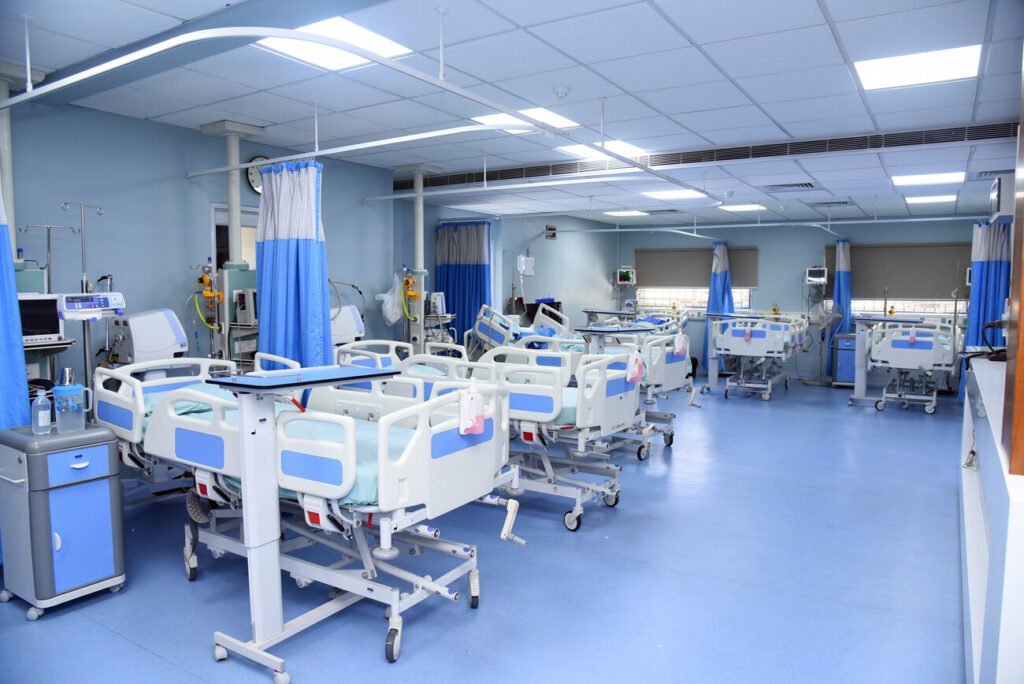When navigating the healthcare system, you may come across many unfamiliar terms. One such term is the MICU medical abbreviation, often seen on hospital signs, charts, or during serious health events. This article will explain what MICU stands for, where it’s used, and how it impacts patient care.
MICU Medical Abbreviation – Profile Table
| Term | Description |
| Abbreviation | MICU |
| Full Form | Medical Intensive Care Unit |
| Used In | Hospitals and Critical Care Facilities |
| Primary Purpose | Treating critically ill medical patients |
| Common Conditions Treated | Respiratory failure, sepsis, cardiac conditions |
| Staffed By | Intensivists, Nurses, Respiratory Therapists |
| Equipment Available | Ventilators, Monitors, Infusion Pumps |
What Does MICU Stand For?
MICU is an abbreviation for Medical Intensive Care Unit. It is a specialized hospital unit designed to provide intensive care and monitoring for patients with severe medical conditions. Unlike surgical or trauma ICUs, the MICU focuses solely on non-surgical, internal medicine-related critical cases.
The Role of MICU in Modern Hospitals
The MICU plays a crucial role in saving lives by offering advanced care for those who need constant monitoring. Patients admitted here often suffer from complex illnesses that require ventilatory support, continuous IV medications, and specialized interventions.
How MICU Differs from SICU and Other ICUs
While many intensive care units exist, it’s important to differentiate MICU from others:
- MICU handles medical emergencies (e.g., pneumonia, kidney failure).
- SICU (Surgical ICU) is for post-surgical patients needing close monitoring.
- PICU (Pediatric ICU) is for critically ill children.
- NICU (Neonatal ICU) serves newborns requiring intensive care.
Common Conditions Treated in the MICU
The MICU is equipped to handle a wide variety of serious medical issues:
- Severe asthma or COPD exacerbations
- Sepsis and septic shock
- Diabetic ketoacidosis
- Stroke or altered mental status
- Acute renal failure
- Uncontrolled heart arrhythmias
Who Works in the MICU?
Staff in the MICU are highly trained specialists in internal medicine and critical care. A typical MICU team includes:
- Intensivists (critical care doctors)
- Critical care nurses
- Respiratory therapists
- Pharmacists
- Physical and occupational therapists
This multidisciplinary approach ensures patients receive comprehensive treatment.
Specialized Equipment Used in MICU
Because MICU patients are medically fragile, the unit is stocked with state-of-the-art equipment:
- Mechanical ventilators
- Hemodynamic monitors
- Infusion pumps
- Blood gas analyzers
- Portable X-ray machines
These tools allow for real-time monitoring and immediate intervention when necessary.
Admission Criteria for the MICU
Not every patient qualifies for the MICU. Admission is based on:
- Severity of illness
- Need for ventilatory or organ support
- Unstable vital signs
- Need for close monitoring beyond standard hospital care
Physicians determine if the MICU is the right placement after evaluating the patient’s condition and prognosis.
MICU Medical Abbreviation in Healthcare Documentation
In medical charts and hospital systems, the MICU abbreviation is often noted for:
- Patient transfer notes
- Nurse shift reports
- Emergency department assessments
- Hospital admission logs
It allows for quick recognition of the patient’s care level and unit assignment.
Family Involvement and Visiting Policies in MICU
Since the MICU environment is high-stakes and fast-paced, hospitals usually have strict but compassionate policies for families:
- Limited visiting hours
- Infection control protocols
- Communication via patient liaisons
Some MICUs also offer remote camera monitoring or daily updates for families.
MICU and Patient Outcomes
Studies show that patients treated in specialized MICUs have:
- Higher survival rates
- Faster recovery times
- Better management of chronic illnesses during critical flare-ups
MICU protocols are constantly updated based on medical research, making it a dynamic and lifesaving department.
Training and Certification for MICU Professionals
Working in the MICU requires extensive training:
- Critical care board certification
- ACLS (Advanced Cardiac Life Support)
- ICU nursing certification (e.g., CCRN)
Ongoing education is required to keep up with the evolving standards of care.
MICU Medical Abbreviation in International Contexts
While MICU is widely used in the U.S. and other English-speaking countries, some nations use alternative terms like:
- ICM (Intensive Care Medicine)
- Reanimation Unit (used in France)
- High Dependency Unit (UK hospitals use HDU for slightly less critical care)
Still, the MICU concept remains globally recognized as a cornerstone of modern medical care.
Digital Advancements in MICU Units
The integration of AI-driven monitoring, tele-ICU technologies, and automated alerts has transformed the MICU:
- Enables early detection of organ failure
- Improves medication accuracy
- Supports remote specialist consultations
These innovations have helped reduce response times and boost patient survival.
Conclusion
Understanding the MICU medical abbreviation is essential, especially if you or a loved one ever require critical care. MICU, short for Medical Intensive Care Unit, is a vital part of the healthcare system, dedicated to treating patients with life-threatening conditions. From highly skilled staff to advanced technology, the MICU ensures patients get the best possible care when every second counts.
Read more: Ovo Hooda Math – Master the Fun Parkour Puzzle Game Online
FAQs about MICU Medical Abbreviation
MICU stands for Medical Intensive Care Unit, a specialized unit for critically ill patients with medical conditions.
Patients with serious medical issues such as respiratory failure, infections like sepsis, cardiac issues, or metabolic disorders are treated in the MICU.
MICU handles medical cases, while SICU focuses on surgical patients needing intensive post-operative care.
Not always. Some hospitals have hybrid units or combine ICUs due to space or staff, but the goal remains critical care.
Yes, but with restrictions for infection control and to ensure patient safety and rest.
The MICU provides continuous monitoring, has a higher staff-to-patient ratio, and treats more severe conditions than standard wards.
